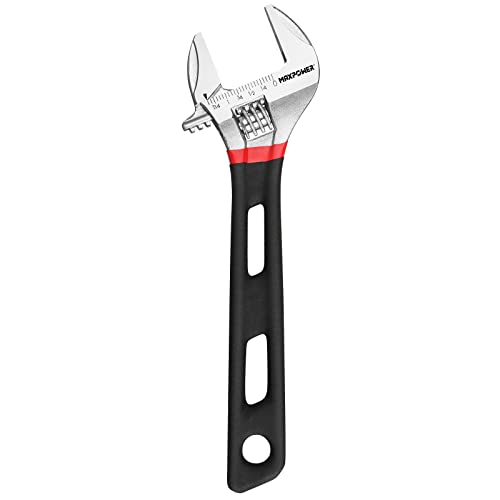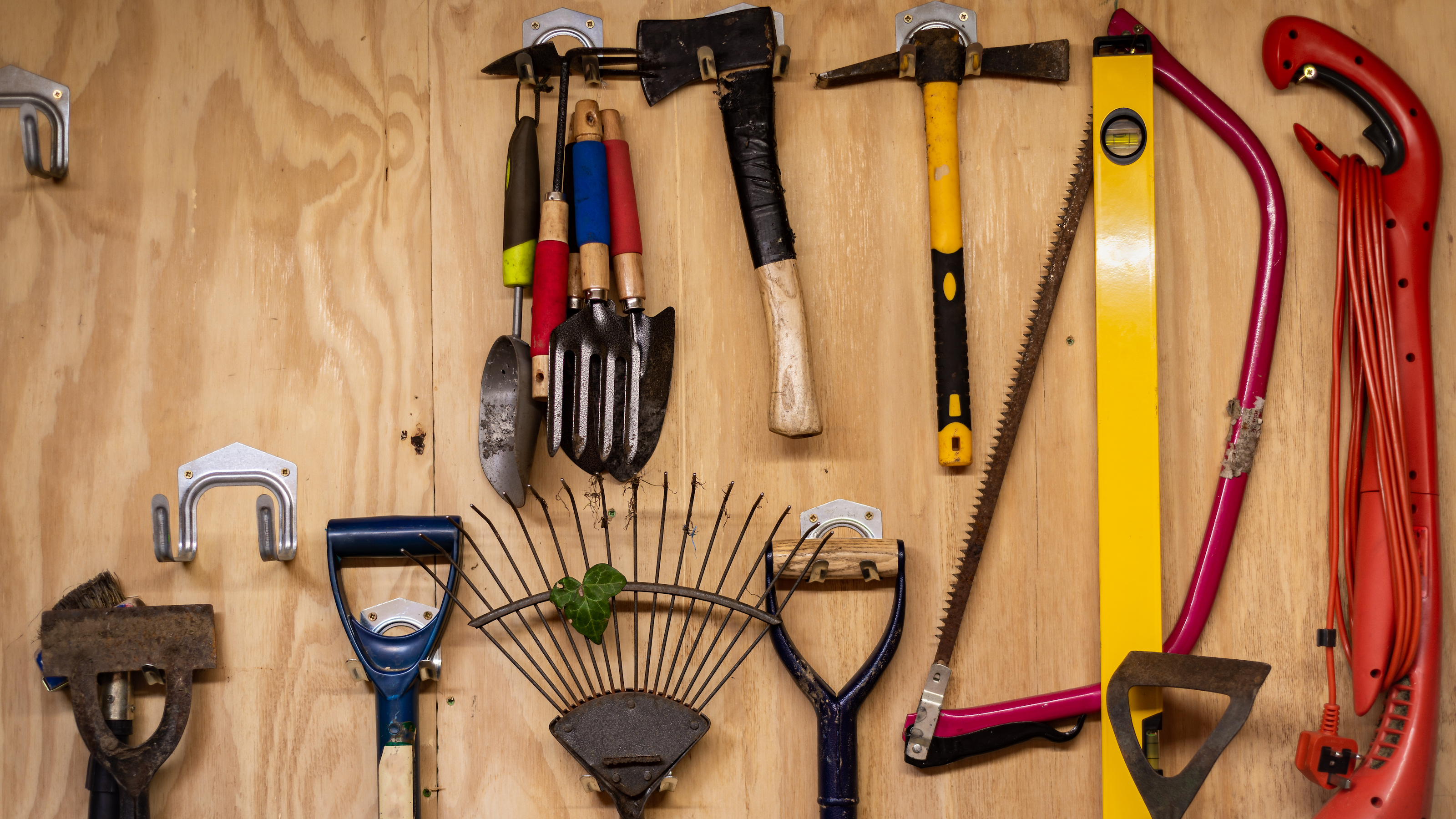Is your radiator not heating up properly? Find out how to fix it
A radiator not heating up is annoying and frustrating, but here you’ll find expert advice to make sure your home will be warm and cosy when needed

A radiator not heating up is more common than you might think. Understanding the reasons behind the issue allows you to quickly identify a solution to fix it. Thankfully, the repair is often straightforward and can be handled as a DIY project.
However, the problem may not have a simple fix. You can learn how to replace a radiator yourself, or you can call in a professional to address the issue. Here, we list the most frequent causes and their solutions to ensure your radiators warm up as expected.

David has a Master's degree in Sustainable Architecture (Advanced Energy and Environmental Studies), is a fully qualified Gassafe and renewables installer and has 30 years of experience in the industry.
Reasons why radiators are cold
There are several probable reasons why your radiators are not not getting hot, including:
- Debris in the pipework or filter
- Circulation pump not working or has air in it
- Air in the system
- Thermostatic radiator valve (TRV) is stuck
- Lockshield has been fully opened or closed
- Boiler or heat pump not working properly
- Central heating has turned off
- Fuel source has run out
Here, we take a look at the possible reasons individually to help you identify which one is causing your cold radiators and explain what you can do to get them toasty again.
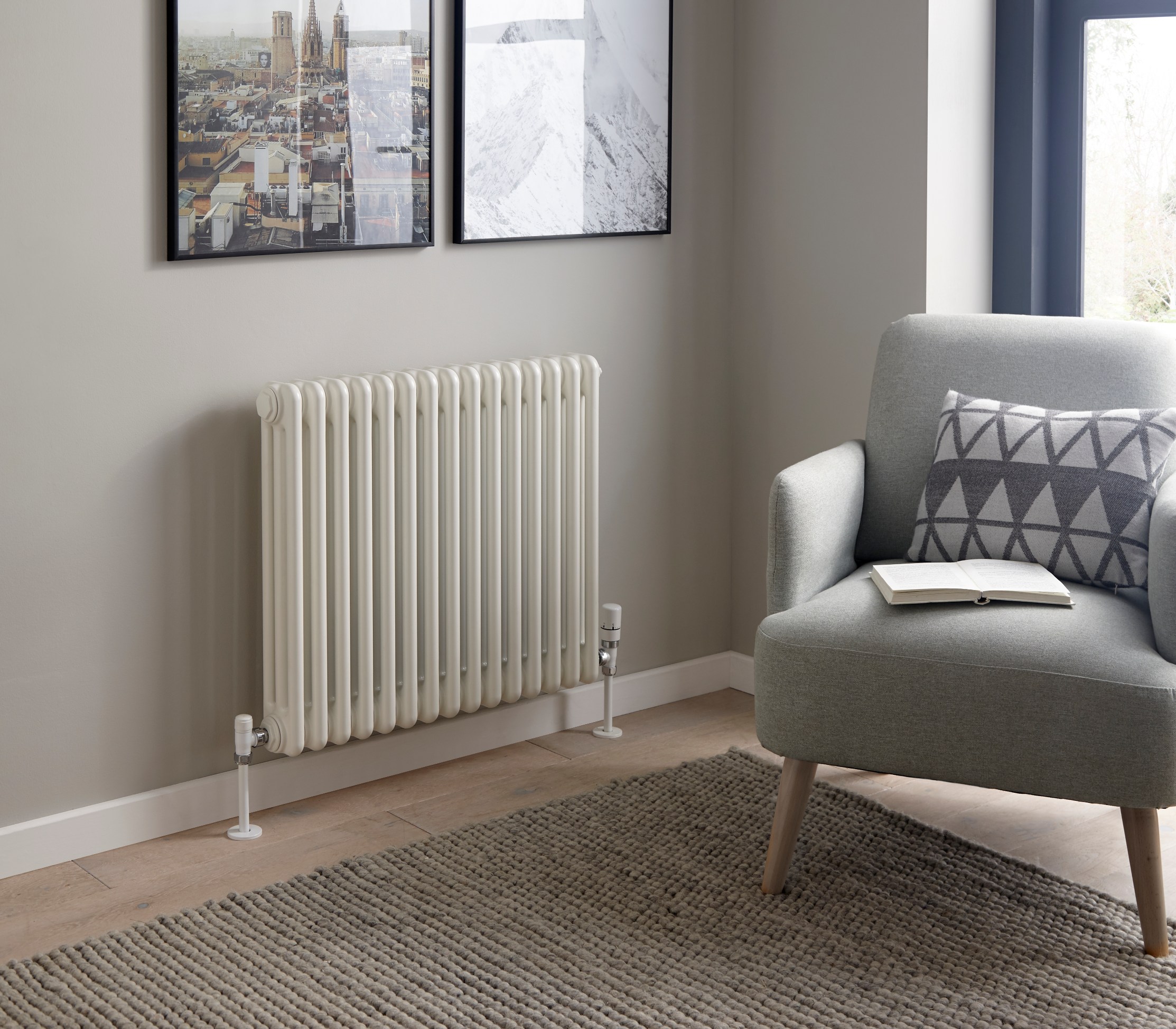
Try these tools to help fix a radiator not heating up
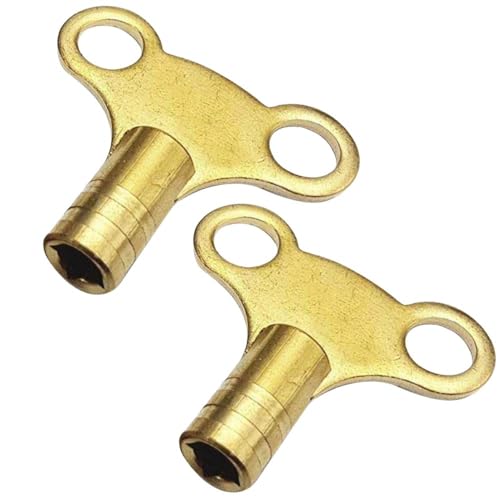
This solid brass butterfly shaped easy to grip radiator key comes as a set of two. The square opening will fit most UK radiator heating systems.
1. A blocked radiator
"If the system has not been serviced then there could be a build up of debris in the pipework or the filter," explains David Hilton, director at Heat and Energy Ltd. The simple solution is to get the system serviced by a professional.
Blocked radiators can be caused by a build up of limescale, sludge, rust or debris flowing through the system. This restricts the flow of water meaning blockages that start of fairly small can quite quickly become big blockages.
Blocked radiators are usually cold at the bottom and warm at the top.
If the problem is only affecting one radiator, it can be possible to remove it and flush it out with a garden hose, before replacing it. However, if you have several radiators not heating up then it may be necessary to have them power flushed by a professional.
A power flush uses pressure to shoot water and chemicals through the system, removing dirt and flushing it away down an outside drain.
2. Circulation pump not working
If a few, or all, of your radiators are not heating up, the circulation pump could be to blame.
Circulating pumps move hot water around a heating system, taking it from the boiler through the pipes to your radiators and hot water cylinder in some cases — before taking it back to the boiler.
Sometimes, blockages or airlocks in the system will occur. Good indicators that this may have happened, other than radiators not heating up, include a water leak from the pump, unusual noises coming from the pump, casing that is hot to touch and no hot water.
You will need to call in a plumber to fix the problem.
3. Air in heating system
A very common cause of radiators not heating up is an airlock in the central heating system.
"There could be air in the system which would mean that the radiator may only heat a little bit at the bottom, or not at all if there is a lot of air," explains David Hilton. "You will need to bleed the radiator to get the air out.
"As you let air out of the system you need to allow more water in. A gravity fed central heating circuit should fill automatically but a high pressure system will have a valve (or two) to let the water in. Don’t leave this valve open. Pressurise the system a bit and then bleed the radiator. It is usually best if two people do this but if in doubt call in a professional."
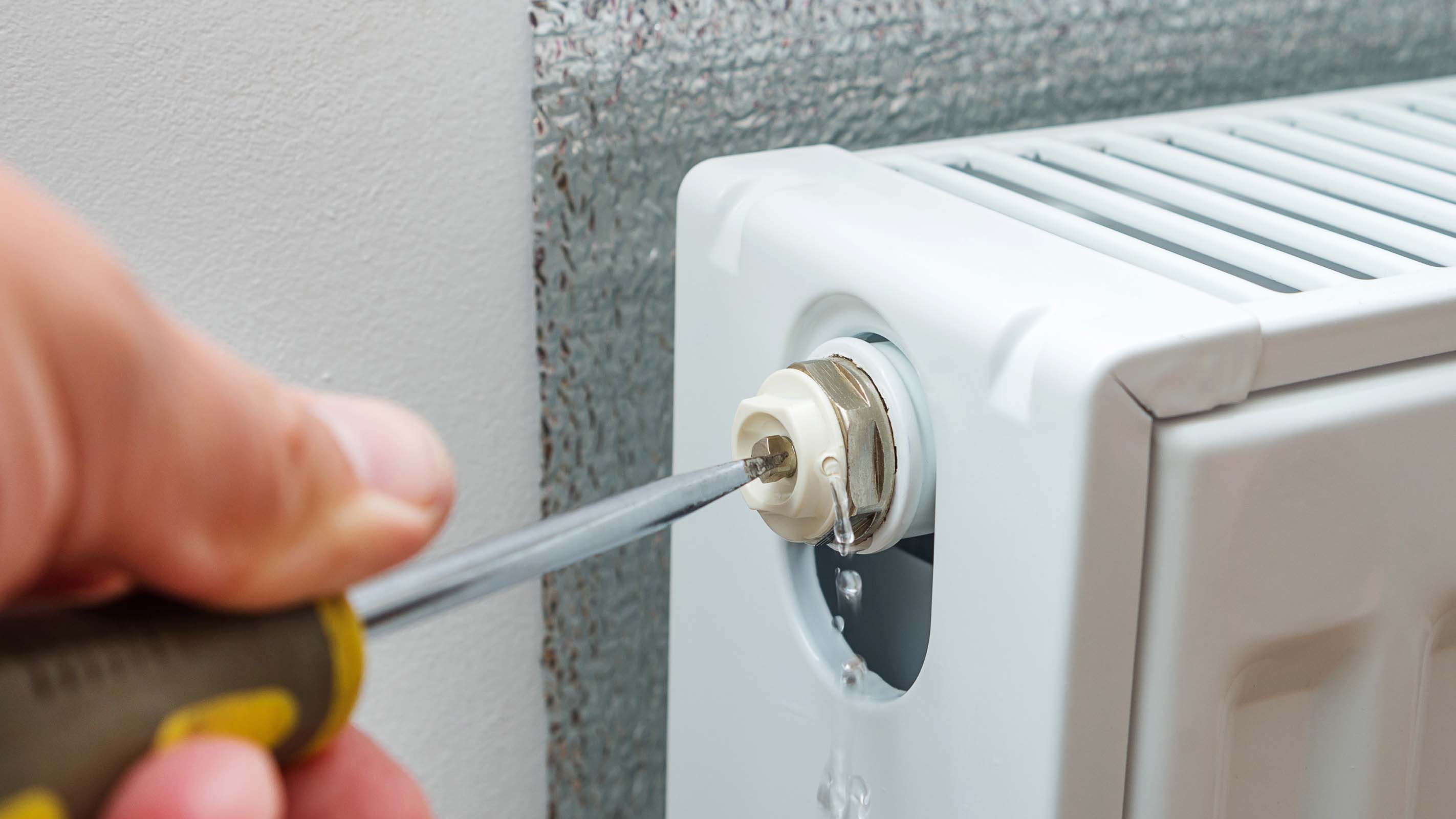
4. A stuck TRV
If it is just one radiator not heating up, then a stuck thermostatic radiator valve could be the culprit.
A thermostatic radiator valve (TRV) controls the flow of hot water to a radiator and occasionally these can get stuck, meaning they can't open to allow the hot water in.
"The TRV pushes a pin in and out and sometimes this pin corrodes and will not move," says David Hilton. "By unclipping the TRV you may be able to free it up, but be careful as it may be badly corroded and pop out or leak."
Try to free the pin using pliers and grease but don't use excessive force as you might damage the pin. If you can't free the pin then we would advise you call a professional.
5. Lockshield in wrong position
"On the opposite side of the radiator to the TRV is a lockshield," says David Hilton. "This looks like a small valve with a cap on it and it is used to balance radiators. What can often happen is that this is closed when a radiator is moved (for example, to paint behind a radiator) but then fully opened again when the radiator is replaced, rather than returning it to its previous position, which is often only a quarter turn open.
"This means that the boiler water will now circulate more through the closed radiators and hardly ever get heat to furthest away radiators."
A good signal that this is your problem will be if the radiators upstairs (or those nearest to the boiler) are getting hot but the downstairs radiators are cold. The system will need to be rebalanced.
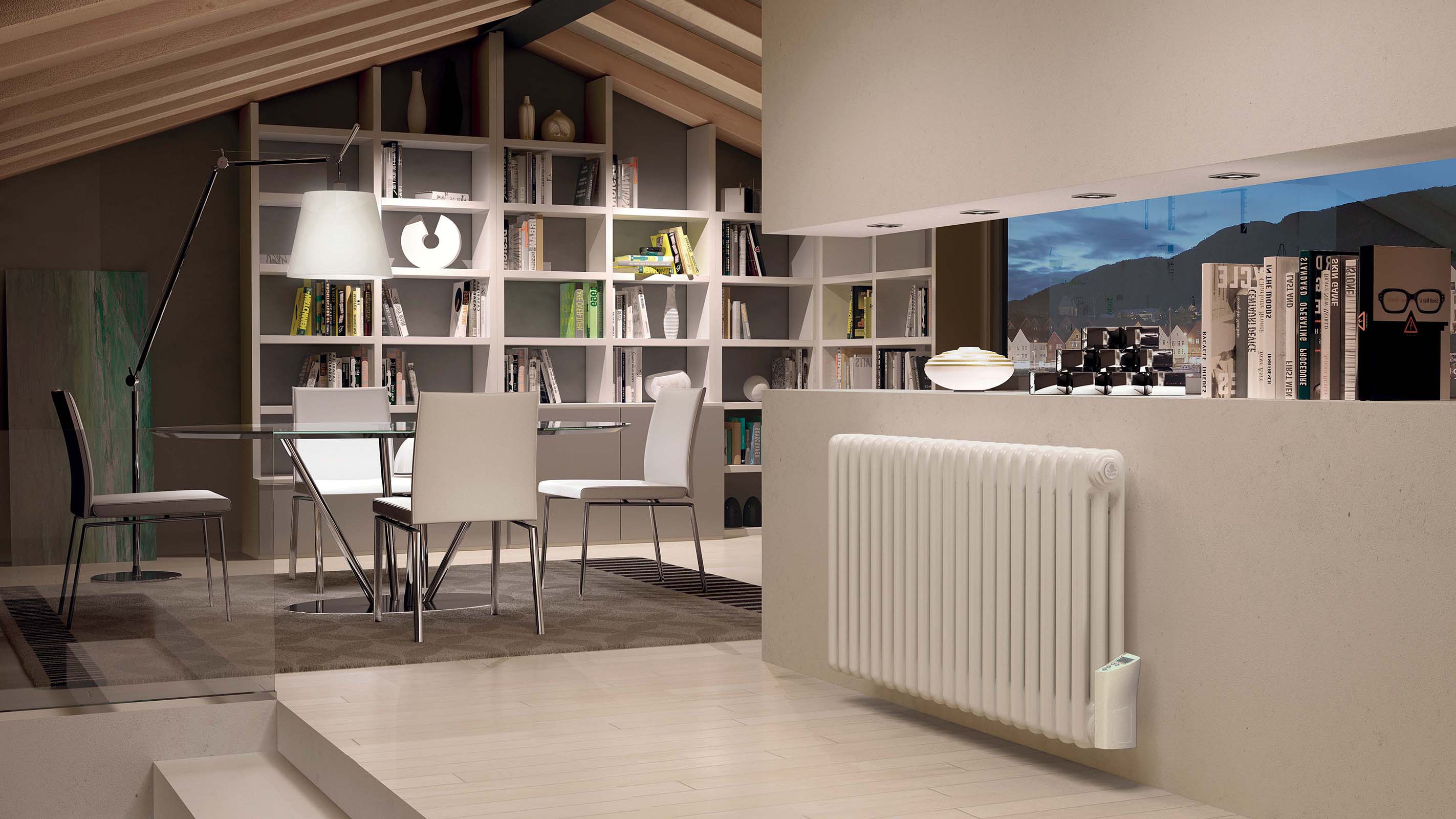
6. Faulty boiler or heat pump
An obvious reason for radiators not working is a faulty boiler or heat pump. Check your boiler is on the right setting and appears to be working — a fault code will usually alert you to a problem. You may find you can put it right easily, but in some cases a Gas Safe registered heating engineer will need to be called out.
If you use a heat pump to heat your radiators, check it is working as normal and that it hasn't become clogged with any debris. In some instances, you may need a new boiler. Check out our How much is a new boiler guide for more info.
7. Drop in water pressure
If you have a combi boiler, or a high-pressure central heating system, the problem could lie with a drop in pressure, causing the boiler to cut out.
Take a look at the pressure dial — it should be in the range specified in the instruction manual. If not, you will need to top-up the water (check your manual for instructions) to repressurise the boiler.
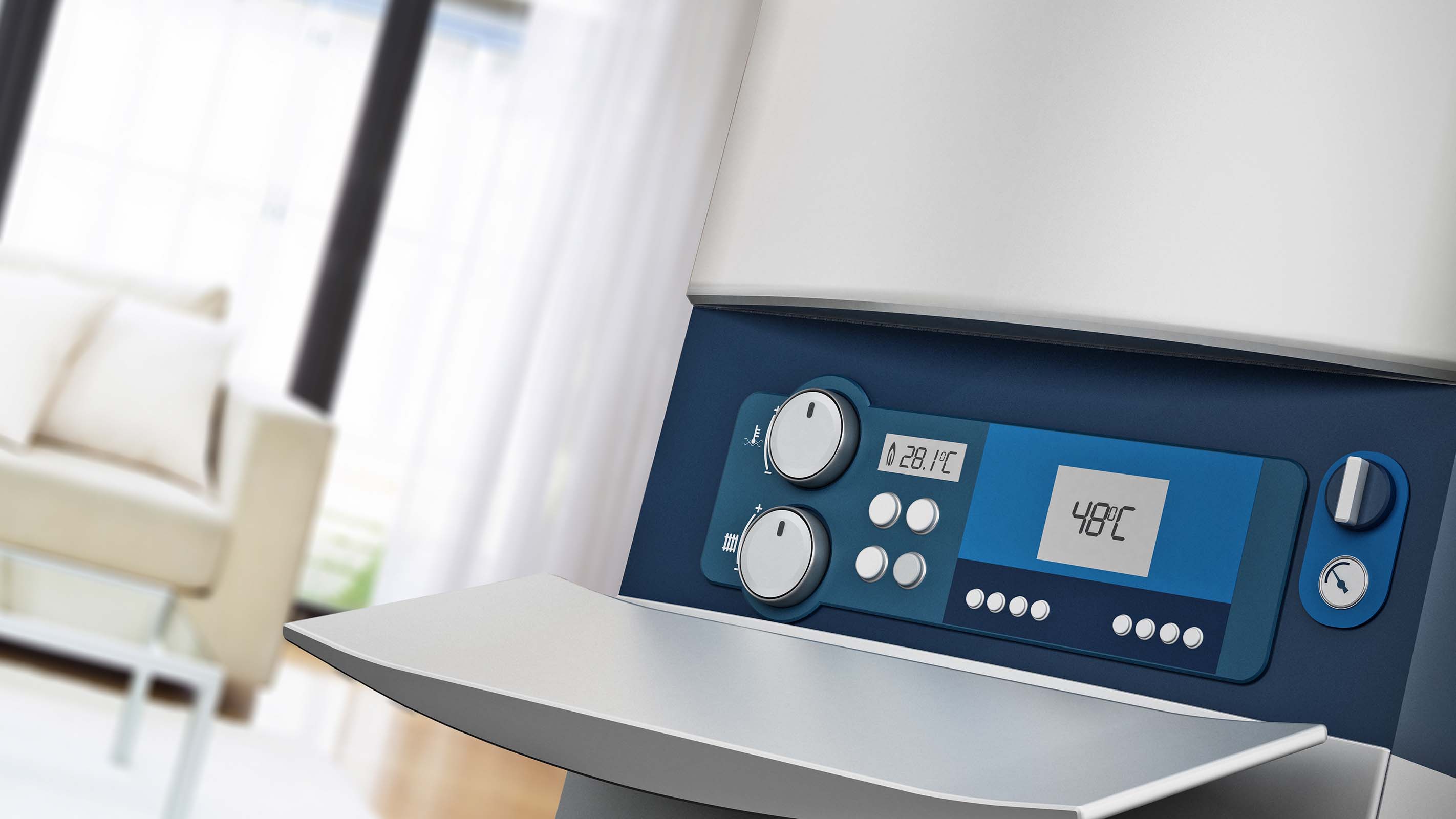
8. Central heating turned off
Yes it sounds obvious, but before you do any of the above, you really should check that your central heating hasn't been switched off or set to summer mode, or to heat the water only, by accident — you really don't want to go calling out a plumber only to discover this was the cause.
9. Running on empty
Another embarrassing cause of radiators not heating up (a bit like running out of petrol).
If you use LPG or heating oil to power your heating system, could it be that you have forgotten to check your fuel levels and run out?
One issue here is that running out oil can result in debris in the tank entering the heating system. Your system might need power flushing by a professional as a result. (So the bottom line is, regularly check the bottom line on your oil tank to ensure you don't run out!)
If you have a radiator that’s not working, you might need to fit a new radiator valve to solve the issue. If your radiator is leaking water from the bottom, it might be time to replace it. Check out our how to remove a radiator guide for help.
Get the Homebuilding & Renovating Newsletter
Bring your dream home to life with expert advice, how to guides and design inspiration. Sign up for our newsletter and get two free tickets to a Homebuilding & Renovating Show near you.
Natasha was Homebuilding & Renovating’s Associate Content Editor and was a member of the Homebuilding team for over two decades. In her role on Homebuilding & Renovating she imparted her knowledge on a wide range of renovation topics, from window condensation to renovating bathrooms, to removing walls and adding an extension. She continues to write for Homebuilding on these topics, and more. An experienced journalist and renovation expert, she also writes for a number of other homes titles, including Homes & Gardens and Ideal Homes. Over the years Natasha has renovated and carried out a side extension to a Victorian terrace. She is currently living in the rural Edwardian cottage she renovated and extended on a largely DIY basis, living on site for the duration of the project.

